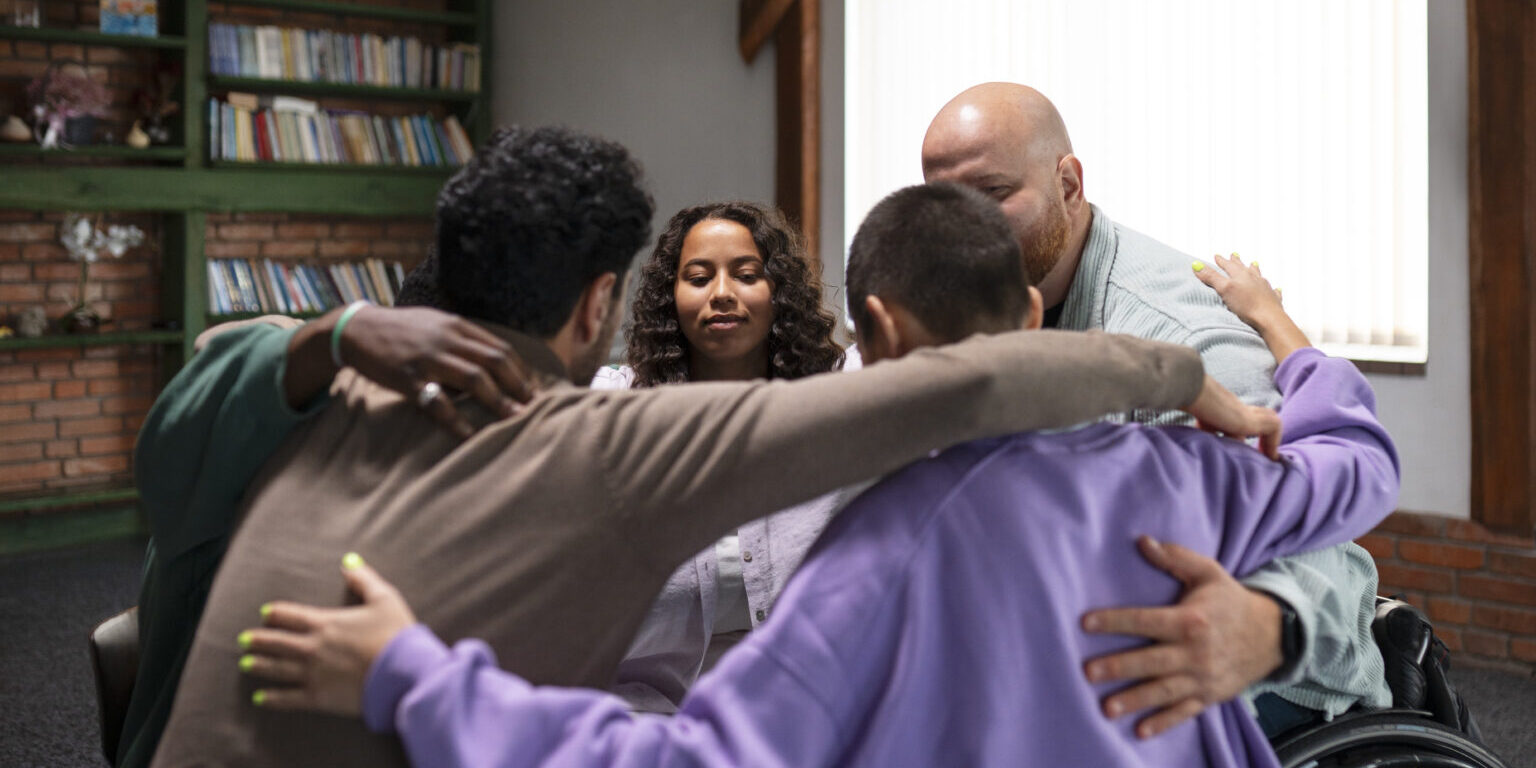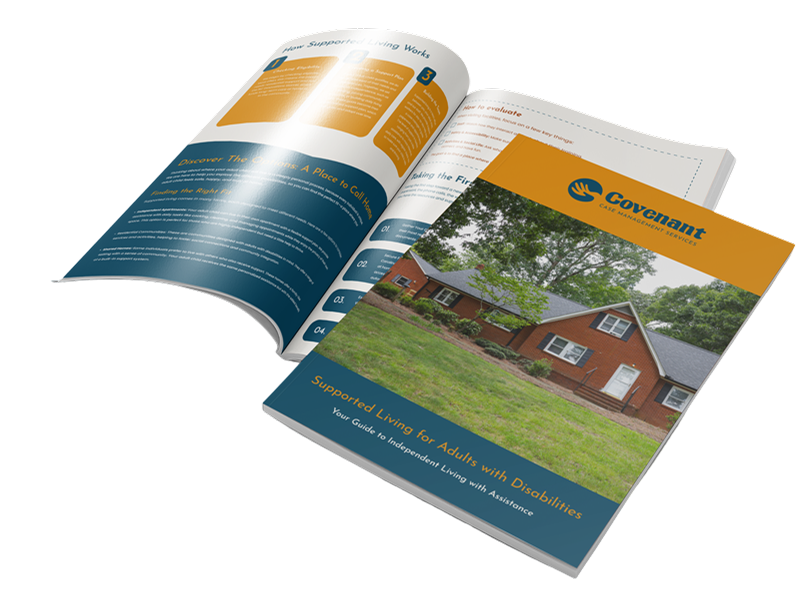
Group Homes for Disabled Adults and How They Support Independence
Covenant Team
Nov 3, 2025
Get the Guidance You Deserve, Right to Your Inbox
Whether you’re a caregiver, care professional, or individual seeking independence, We aim to keep you informed and inspired. Receive updates on services, events, and stories of hope by signing up to become a part of our email list below.
Thinking about your adult child's future as they reach adulthood can feel like a new, uncertain road, even with a heart full of love. When you begin considering different living situations, like group homes for disabled adults, a mix of emotions is completely normal. We want to reassure you that while it might feel like a step away from your adult child, it's a profound step forward. You are helping them build a life of their own, one filled with purpose and independence.
This article will provide honest, straightforward information about what residential programs for adults with disabilities truly are. We will explore how these environments offer a unique balance of supported living homes with the freedom for your adult child to learn, grow, and pursue their own dreams. It's a new chapter, full of possibilities for a life that is both independent and fully supported.

What is a Group Home for Adults with Disabilities?
A group home is a small, family-like home in a regular neighborhood, designed to feel just like a typical residence. These homes are a form of community-based housing where a few adults with intellectual and developmental disabilities live together. The main purpose is to provide assisted living, staffed by trained caregivers. It is a safe, supportive, and caring environment that helps residents become more independent.
When you hear the term "group home for disabled adults," you might picture a large, institutional facility, but that isn't the case at Covenant. Instead of a hospital-like setting, group homes offer a genuine sense of home and community. Every individual should have the opportunity to live a life of purpose, and group homes are built on this idea.
These supported living homes offer a balance of independence and assistance. This can include help with everyday tasks like cooking, cleaning, and managing personal care, all within a safe and supervised environment. This model is designed for adults who desire more independence but still need some help with daily life. It's a place where they can develop new skills and build relationships, all while feeling a sense of belonging.
3 Core Benefits of Group Homes for Disabled Adults
We believe that supervised living programs should offer a foundation for a full, purposeful life. In a group home, every day is an opportunity for growth, connection, and joy. This is where your adult child can discover what's possible in their life.
Here are the three core principles that guide supported living homes toward providing a life of purpose:
1. Community Building
Residents live together in a community setting, often in a shared house, with a comfortable, home-like atmosphere rather than a large, institutional one.
Living with peers in a shared home creates a powerful sense of community and belonging. This model of shared housing with support helps prevent feelings of isolation and provides a supportive family-like atmosphere. Your adult child has the chance to build meaningful friendships and feel a part of a caring household.
2. Independence Enablement
Residents can live more independently than they might at home or in a more restrictive facility, while still having access to the support they need.
Group homes are places where small, daily victories lead to greater independence and confidence. For your adult child, learning to do laundry or heat up food for themselves are powerful steps toward a fulfilled life.
These programs focus on helping them gain the skills they need for daily living, allowing them to see what they can accomplish.
3. Whole-Person Support
Staff members provide various levels of support, including help with daily living tasks, ensuring resident safety, and promoting independence.
This support helps your adult child activate their unique strengths and live a life on their own terms. The staff-to-resident ratio is also designed to ensure each person receives the attention and assistance they need to thrive.
How to Find the Right Group Home for Your Adult Child
Choosing a new home for your adult child is a big decision, and we know that there is no one-size-fits-all solution. Here are three effective places to begin your search:
- Local Agencies: You can start by reaching out to local organizations that support people with disabilities. In North Carolina, The Arc is a great resource, with local chapters across the state that provide advocacy, support, and services to families.
- State and Local Government Resources: Check for state or local programs and services that may offer or fund group home options for individuals with disabilities. North Carolina's Department of Health and Human Services provides adult placement services to help adults with disabilities find appropriate living arrangements.
- Online Search: Use search engines to find group homes in your specific area by searching for "[your location] group homes for adults with disabilities." Some organizations, like Monarch and Easterseals, also provide information on their websites about long-term group homes they operate in various North Carolina counties.
Once you have a list of potential long-term care for adults with disabilities options, we recommend touring them in person. As you visit, pay attention to the atmosphere and ask important questions. Find out about the staff-to-resident ratio, the types of personal care services offered, and how they encourage social inclusion in group homes. This process helps ensure that your adult child will feel valued and supported in their new home.
A Hopeful Path
Considering a group home for your adult adults is a powerful step toward a brighter future. As you walk alongside your adult child as they discover what they can do, group homes provide a place for them to grow, build friendships, and live with purpose.We know how overwhelming this time can feel. We are here to help you move successfully through this transition and find the right living option for your family. To learn more about our commitment to whole-person support and the services we offer, we invite you to reach out to us.
Download Your FREE Supported Living Guide!


